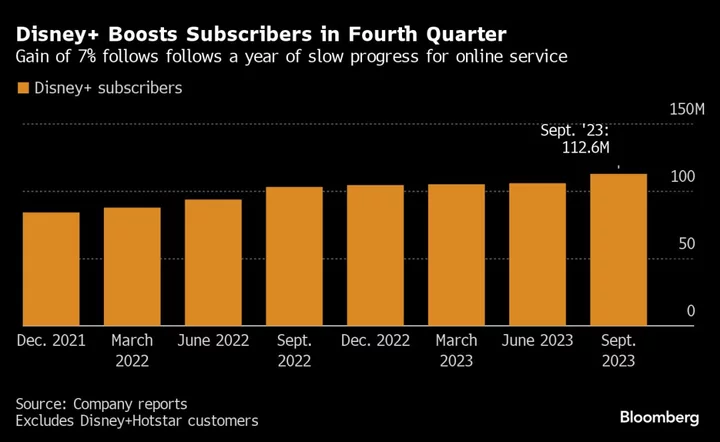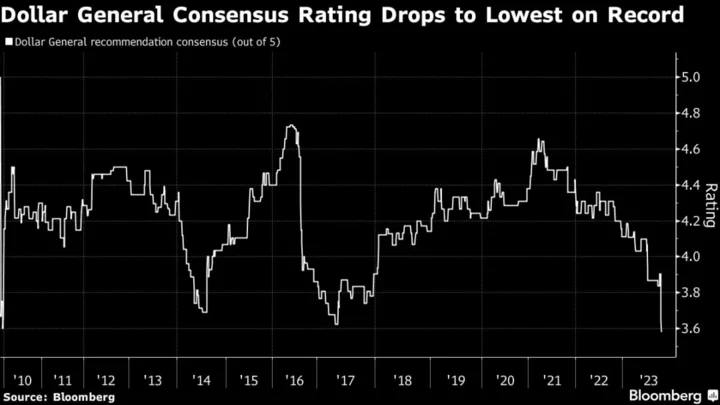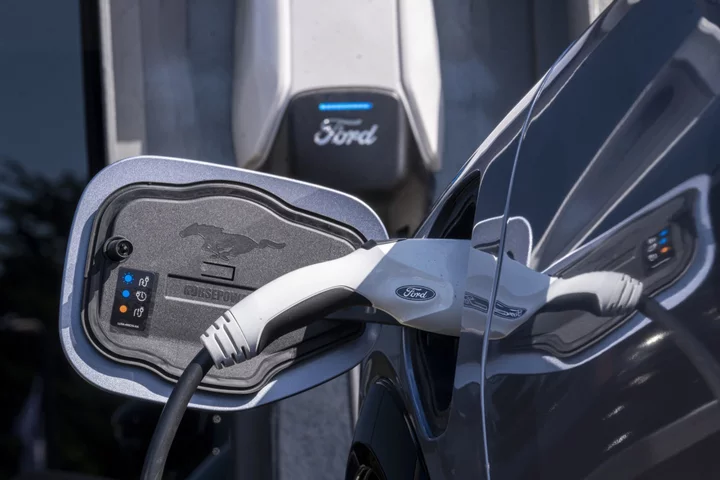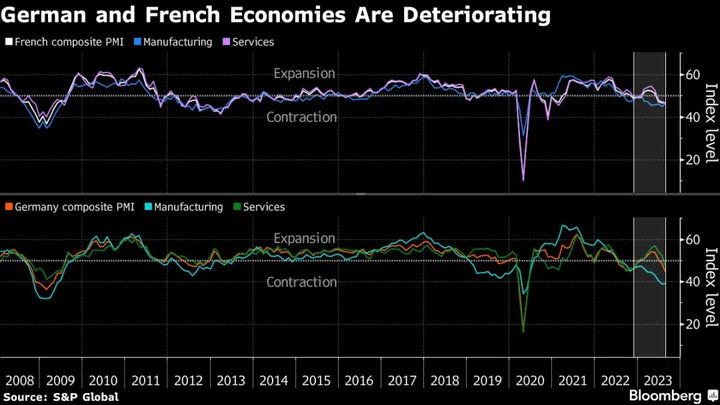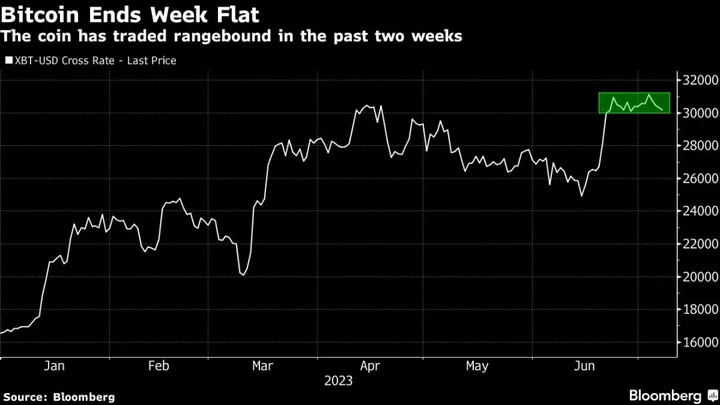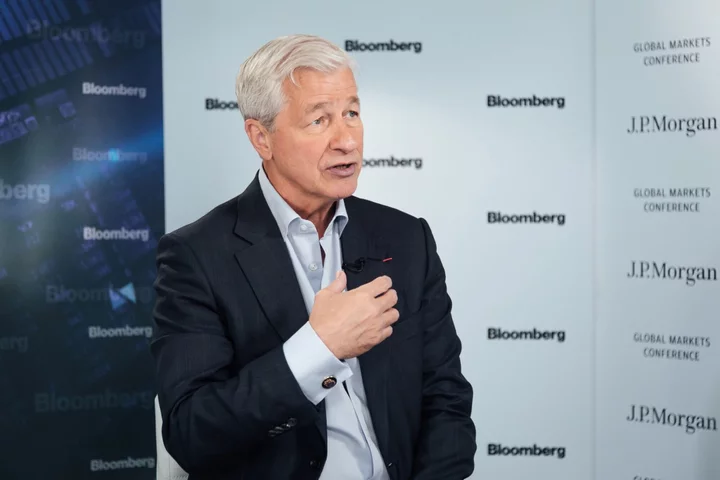Walt Disney Co., embroiled in another fight with activist investor Nelson Peltz, posted fourth-quarter profit that beat analysts’ expectations and said it will cut an additional $2 billion in expenses.
Fiscal fourth-quarter earnings rose to 82 cents a share, excluding some items, Disney said Wednesday. That beat the 69-cent average of analysts’ estimates compiled by Bloomberg. Revenue grew 5.4% to $21.2 billion, compared with estimates of $21.4 billion.
The added cost cutting will move Disney from “an era of fixing to an era of building,” Chief Executive Officer Bob Iger said on a call with investors. By the end of 2023, Disney plans to resume paying a dividend for the first time since the pandemic — addressing a concern raised by Peltz.
The activist investor, whose Trian Fund Management controls a roughly $2.5 billion stake in Disney, plans to seek several board seats at the Burbank, California-based company. Iger had previously committed to cutting more than $5.5 billion from annual expenses and has already eliminated 8,000 jobs this year.
The additional budget cuts announced Wednesday aren’t expected to result in another round of widespread job losses, the company said.
For Disney’s fourth quarter, the flagship theme parks delivered the biggest profit boost, with earnings rising 31% to $1.76 billion in the period ended Sept. 30. Revenue in the division, which includes consumer products, grew 12% to $8.16 billion, led by 55% growth internationally.
Losses in Disney’s streaming business, including ESPN+, narrowed to $387 million in the quarter, coming in better than Wall Street projected. The company continues to expect the business to turn profitable by the fourth quarter of the fiscal year just getting underway.
Globally the number of Disney+ paying subscribers rose to more than 150.2 million, beating estimates of 147.4 million and returning to growth. Disney+ subscribers, excluding the Hotstar customers internationally, climbed 7% to 112.6 million.
Shares of Disney were up more than 3% to $87.13 in extended trading after the announcement. The stock had been down roughly 8% since Iger returned as CEO last November after the ouster of his successor, Bob Chapek.
Disney’s overall content spending is expected to fall to $25 billion in the current fiscal year, 17% below two years ago. The company is in talks to again sell some of its programing to Netflix Inc., but that won’t include core brands like Marvel and Star Wars.
Peltz has argued that Disney’s costs are too high and that its board should be held more accountable in areas such as succession planning.
The billionaire investor’s holdings include shares pledged by Ike Perlmutter, the former chairman of Marvel Entertainment who was fired by Iger earlier this year after lobbying for Peltz to join Disney’s board. Peltz dropped an initial push for board representation after Iger unveiled his first round of cost cuts.
In addition to reducing expenses, Iger is evaluating how to reposition Disney as its traditional TV networks, including ABC, National Geographic and FX, continue to lose viewers and advertisers.
Earlier Wednesday, shares of Warner Bros. Discovery Inc. fell by the most on record after the company reported a drop in network advertising and said the market may remain challenged next year.
Disney’s CEO has suggested he’s open to selling the traditional TV networks, as well as possibly seeking a minority investor or joint venture with a tech company to accelerate the ESPN sports network’s transition to streaming.
Iger said Wednesday in an interview on CNBC that the main ESPN channel would be offered online as a standalone streaming product no later than 2025.
Management broke out the results of ESPN separately for the first time, saying revenue at its sports networks was little changed at $3.91 billion in the fourth quarter, while earnings grew 14% to $981 million. Disney credited higher subscription revenue and lower programming costs.
Earnings from the company’s entertainment networks were little changed at $805 million, while revenue slumped 9.1% to $2.63 billion.
Disney is also buying rival Comcast Corp.’s one-third stake in the Hulu streaming service for at least $8.61 billion. Next month, Iger said, the company will debut a beta version of a single app integrating Disney+ with Hulu, ahead of a formal rollout in March.
This week, the company announced that PepsiCo Inc.’s chief financial officer, Hugh Johnston, would become its new CFO. A veteran finance and operations executive, Johnston helped lead Pepsi through a Peltz campaign in the 2010s.
(Updates with CEO comments in third paragraph.)

